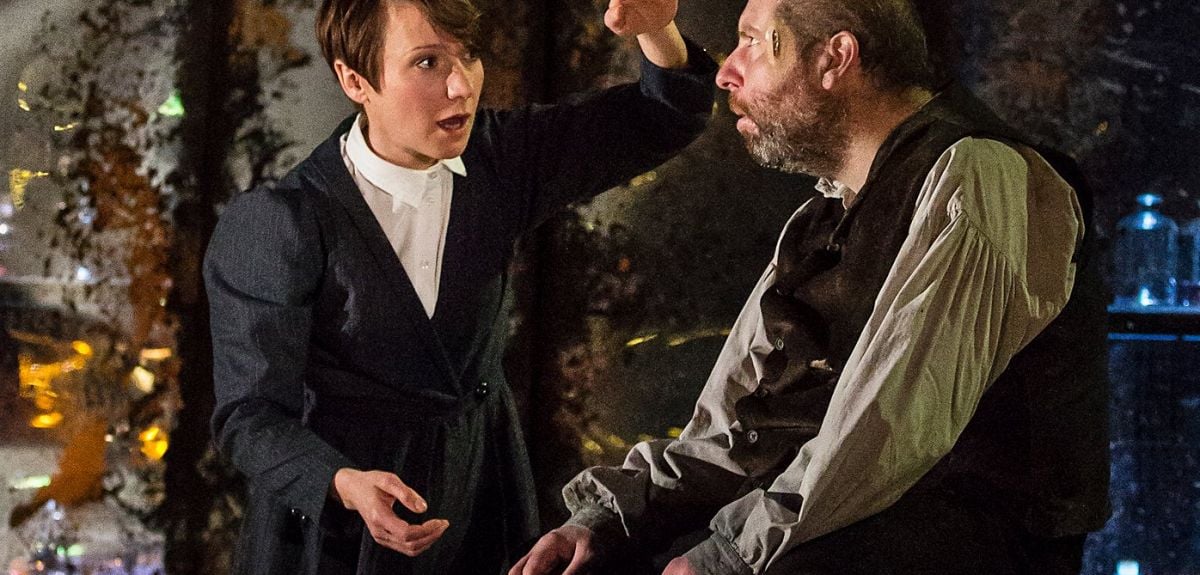
Literature experts discuss 'Dr Victoria Frankenstein'
The doctor who created Frankenstein’s monster has been played on stage by a woman, for what is believed to be the first time.
A new play at the Northern Stage in Newcastle, features one Dr Victoria Frankenstein as the lead role in Selma Dimitrijevic's adaptation of Mary Shelley's iconic novel.
It's a fascinating idea, according to two of Oxford University’s experts on Mary Shelley.
‘The original novel is about a perverse, lone, male scientific kind of creativity, embodied in the character of Victor Frankenstein,’ says Professor Karen O’Brien, an expert in eighteenth-century literature and Head of Oxford’s Humanities Division.
‘Victor's creativity cuts him off from the normal, domestic world of women and female fertility. He gives life to the monster, not coincidentally, shortly after the death of his own mother.
‘So a female Frankenstein is a fascinating idea. How might the female fertility and genius be linked? In the novel, the Creature, or Monster, actually resembles the female heroines in Mary Shelley's mother's novels - isolated, sensitive, forever excluded from mainstream society by their inability to find happiness on the unequal terms offered by men.
A female Frankenstein is a fascinating idea
Professor Karen O'Brien
‘This adaptation transfers that outsider role to the scientist character. So how are we to interpret the Creature?’
Fiona Stafford, Professor of English Language and Literature at Oxford University, was interviewed about the casting on BBC Radio 4’s Today programme.
She says: ‘Mary Shelley would have been aware growing up in an unusual, avant garde household that, although she was a very intelligent woman, there was no opportunity for her to train as a doctor or to go to university.
‘In many ways you can read Frankenstein as a critique of male obsessive pursuit and of not thinking through the consequences of his actions, so it is interesting to see how that translates into Victoria Frankenstein.’
‘You can read the book in many different ways and I think that is part of the secret of its enduring success, it is extraordinary that a novel that was published in a fairly modest form in 1818 should still have this afterlife.
'In a way that is something that Mary Shelley’s myth is visiting, the idea that you can create something and then you don’t actually have control of it, it has a life of its own.
‘In some ways you can see a parallel between Mary Shelley the novelist and Frankenstein. Although we tend to think of him as a scientist, she too is bringing together something and bringing it to life, and then it has taken on a life of its own to the extent that the Creature is often thought of as Frankenstein.’
Professor Stafford's interview can be heard here.
Professor O'Brien will also be interviewed by BBC World Service's The Forum on Saturday 18 February. The recording will be found here.